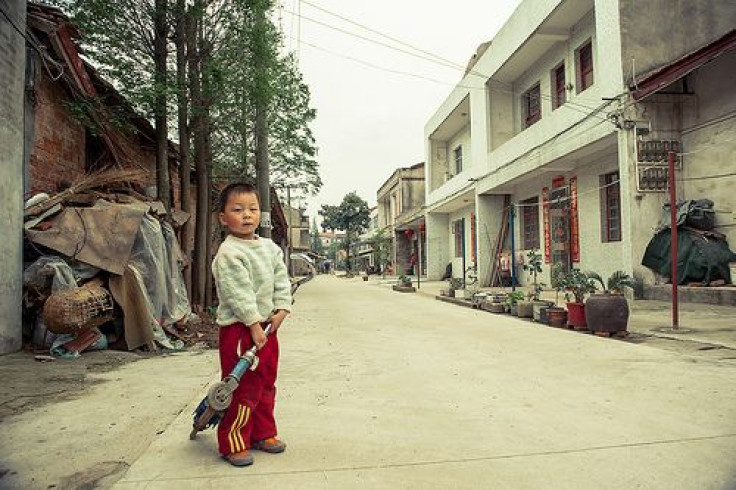China’s One-Child Policy Found To Create Fearful Pessimists: The Ups And Downs Of Not Having Siblings

China recently unveiled the greatest liberalization of its one-child policy of the last three decades: Parents who do not have siblings will soon be able to have two children in order to make up for the missing potential cousins. The change is estimated to spark one million new births per year, according to Mao Qun'an, spokesman for the National Health and Family Planning Commission. But millions of only children have already been born, and without any siblings or cousins to speak of, the life they lead is expected to be a turbulent one.
Living life as an only child has its bona fide upsides. Parents shower you, and only you, with their love and affection. Meanwhile, you have to share none of the family’s resources with brothers or sisters. You are the basket your parents are putting all their eggs in. A life with siblings, on the contrary, grooms kids to be more naturally sociable, more communistic, better empathizers. But researchers have found China’s one-child policy may actually do more harm than good, both personally, as children grow up less trusting and conscientious, and economically, as the total labor output of the country has finally begun to suffer.
Since 1997, Amherst College sociologist, Vanessa Fong, has tracked a group of 2,273 Chinese "singletons” — only children of the one-child policy. Fong interviews between 600 and 1,300 of the original group each year, monitoring their life progress and checking in on their emotional state. Many of the children never grew up with the concept of a “sibling,” a term they often used in place of “cousin,” as their parents tended to have multiple siblings from before the 1979 policy.
The immediate result of the one-child policy, Fong found, was that families began pouring money into their children’s future. Burdened only with one child’s well-being, parents were now able to invest all their time and resources into securing a stable career.
"Every family suddenly had a huge amount of discretionary income to invest in education, and also in consumption," Fong explained to the BBC. This trend was not without consequence. Diplomas soon became inflated. Everyone had one. Where menial jobs once required only the mandatory junior high school education, college degrees became the norm.
"In a way, the country wanted to have their cake and eat it, too," Fong said to Harvard University’s Graduate School of Education News (HGSE). "Once they imagined themselves as part of the First World, thinking 'I'm going to go to the best university, sacrifice all my leisure time and friendships, and become really wealthy,' there is no way they are also going to think 'but, if I don't get it, oh well, I'll just be happy and won't complain.'"
A study conducted earlier this year found that Chinese only children exhibited a wide range of social behaviors not typically found in children with siblings. Researchers from Monash University and the University of Melbourne found that children born after the one-child policy, compared to those born before it, displayed marked differences from one another. One-child policy children were, on the whole, less trusting, less trustworthy, more risk-averse, less competitive, more pessimistic, and less conscientious individuals.
“We found that greater exposure to other children in childhood — for example, frequent interactions with cousins and/or attending childcare — was not a substitute for having siblings,” Professor Lisa Cameron said in a statement. “There is some evidence that parents can influence their children’s behavior by encouraging pro-social values.”
The team’s findings of decreased risk aversion also played out on the macro level. “Our data show that people born under the one-child policy were less likely to be in more risky occupations like self-employment. Thus there may be implications for China in terms of a decline in entrepreneurial ability,” Cameron added.
Prior studies have also found that having siblings reduces the risk of divorce later in life, but at the same time, makes children more likely to develop stress-related problems if a sibling has a disability. As for China’s newly relaxing policies, spokesman Mao said, the country has no immediate plans of removing the policy, although that move is on the horizon.
"We do not deny that there is a contradiction between the state's implementation of the family planning policy and the desire of every individual and every family to give birth,” he told Reuters. But in the most populous country in the world, which nearly 1.4 billion people call home, any drain on resources intensifies at staggering, crippling levels. "As for the policy of family planning, (we) must adhere to it for a fairly long period of time," Mao added, "because our country's demographic situation still needs it."



























